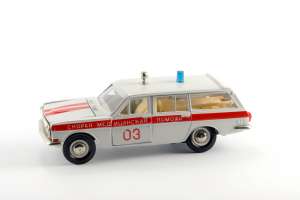It’s an unfortunate fact that medical emergencies happen from time to time. Here in Greenville, TX, we have excellent emergency services, but that doesn’t make an emergency any more pleasant.
One of the trickiest parts of an emergency is that you are often treated by a physician who doesn’t know you or your health issues. And if the situation is truly a medical emergency, you may be in no position to tell him everything he needs to know. This is why it is important to prepare your health information in advance. This allows your treating physician to make the best possible decisions when treating you in an emergency.
Prepare Your Health History
Below is a list of items that you can put together to make sure you receive the best possible care in a health emergency. Be sure to compile this information for each family member, such as aging parents or children you care for.
- List of current medical conditions. Some symptoms can be explained by multiple medical conditions. When your doctor knows your specific medical issues, his approach to diagnosing your symptoms can be tailored to your needs.
- List of prescription names and doses. This list is critical information for your doctor. Your medications may interact in a negative way with medications they give you to alleviate your symptoms, or they may even be the cause of the symptoms. Don’t forget to include any over-the-counter medications or remedies you take.
- List of all allergies to medications or foods. If you know of any allergies, this is important information to share so you aren’t given a medication you shouldn’t take. Food allergies are just as important to list as medication allergies, because there are food components, such as egg protein, in some medications.
- List of all your doctors’ names and phone numbers. Your emergency physician may want to consult with your primary doctor, and he will certainly want to send your records to her for follow up after the emergency passes.
Make Sure Your History is Available When You Need It
Keep this list where you can find it. Give a copy to a close family member who can act on your behalf. If you have a smart phone, you may want to try one of the many apps available to track your health information. These offer an efficient and standardized way of organizing your health information.
The American College of Emergency Physicians recommends listing some In Case of Emergency or (ICE) numbers on your phone in the event you arrive in the emergency room unconscious. List the contact as ICE-1 and ICE-2 or with a name such as ICE-Mom or ICE-Lori. Emergency personnel can easily find these. If you have an iPhone, you can use the iPhone Health app and set this information to show even when the screen is locked. Your ICE contact can be a valuable resource about your health history for your treating physician.
Update Your Health Information Regularly
Don’t forget to keep your list updated. Make appropriate changes after any medical appointment where a diagnosis or prescription changes. Revisit the record every year at a minimum.
Remember that the best way to handle a medical emergency is to prevent it in the first place. Take steps to keep your living environment free of injury hazards, and visit your doctor regularly to keep health conditions under control. But also prepare for an emergency so you have the peace of mind that you will get the best care available should one arise.
Photo Credit: © Denis Dryashkin/Dollar Photo Club


